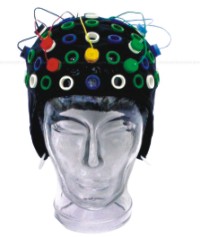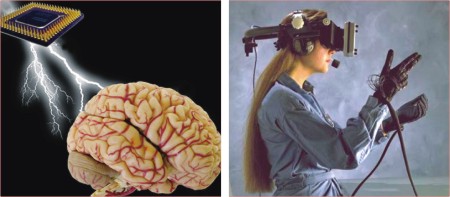Last & Least
Experience machine
and unreal reality
Dr Binoy Barman
 PHILOSOPHERS George Berkeley and David Hume asserted that our knowledge consists of perceptions. We live in a world of perceptions, which form the fabrics of reality. According to them, reality is nothing but only perceptions rushing into our brains through the highway of experience. We know the external world through our sense-based perceptions and without them we are entirely clueless. PHILOSOPHERS George Berkeley and David Hume asserted that our knowledge consists of perceptions. We live in a world of perceptions, which form the fabrics of reality. According to them, reality is nothing but only perceptions rushing into our brains through the highway of experience. We know the external world through our sense-based perceptions and without them we are entirely clueless.
Consider the process of 'knowing' or knowledge. Our five senseseye, ear, skin, tongue and noseget input from the external world and send them to brain for analysis. It is a process from sensation to perception to conception. Upon completion of the process, we can know something or gain knowledge of it. I know about you through my senses. As I can see, I know you are male or female, beautiful or ugly, slim or fat, tall or short, smiling or gloomy, wearing shirt-pants or salwar-kamiz. I know about music through hearing -- Tagore, Nazrul, Lalon, Pop and Jazz. I know honey is sweat and neem is bitter via tasting. Through touching, I can know whether you are warm or cool like the day or night -- soft or hard like flower or stone. By way of smelling, I know mother is cooking biriani or khichiri or the bathroom is dirty or fresh. All my knowledge has come through my experiences of senses. So knowledge is made up of, as John Locke made it clear, experience-based ideas.
The process of gaining knowledge is natural. Exposed to natural environment, human beings automatically gain knowledge through their senses. All knowledge is stored in the brain as perceptions. Now one can ask: is it possible to create perceptions artificially? Scientists say, yes, it is possible. Perceptions can be created in the brain stimulating the neurons there in different ways, for examples, electrically or chemically. Mild electric shocks can be given in particular locations of the brain so that the person will get various sensations and perceptions. Medicines can also be applied to arouse sensational feelings in the brain. People may get artificial experiences in this way. Famous Canadian neurosurgeon Wilder Penfield conducted many such experiments with brain stimulations, giving his patients assorted experiences without any involvement of senses.
Some ingenuous people really have gone a long way in this regard. They have imagined 'experience machine' to pump artificial experiences into people. American philosopher Robert Nozick describes such a machine, which has been recognised by Steven Spielberg's film 'Minority Report'. The machine allows us to have any pleasurable experiences we like, so vividly created in our minds that we take it to be reality.
Just think you can experience the excitement of Bangabandhu Sheikh Mujibur Rahman when he was addressing a historical Dhaka gathering on March 7, 1971. You can see how it will feel like writing 'Geetanjali' of Rabindranath or proposing the general relativity theory of Einstein. You can also feel the pride of elegant beauty of Aishyariya Rai or the hatred of Saddam Hossain towards Gegore W. Bush. You can even become the Prime Minister of Bangladesh or the President of USA. You can feel the pain or pleasure of taking or giving birth. Maybe, you can experience death before you die. The experience machine has all the experiences in digitised form, and once injected into your brain you will get the experience as simulation, I mean, as appearing real.

The experience machine offers people an opportunity to enter what is called virtual reality. It may be a big business as found in the 1999 movie 'Strange Days' where experiences recorded from people's cerebral cortex are traded. People take shelter in the bliss of 'unreal reality' to escape the harshness of 'actual reality'. Not a bad idea! But there is danger. Constant engagement in artificial reality may spoil the power to distinguish it from the practically real. Existence is lost in the haze of hallucination. If you have watched 'The Matrix', you know how people can be trapped in simulation from which they can scarcely come out.
How fervently people aspire for experiences other than their real own! Some resort to narcotics like heroin, marijuana and cannabis. Some take to liquor of different brands -- wine, whisky or vodka. In our country many taste phensidyl only to derive a different type of feelings. The recent scourge of yaba is a manifestation of the same psychological problem. It is the dozy dizziness what people like. They want to drift in the sea of dreaminess away from the reality of life. They want to flee from themselves and hide in the cave of 'unreality'. Drugs have the potency to cause a sort of fake feelings. That is why these are called 'chemical experience machine'.
It is akin to invoking Plato's shadow reality in a different garb. The Greek philosopher identified the real world, as we experience it in the usual way, as an unreality. To him, the abstract, the unreal, is the real. The visible world is just a shadow. Reality exists as form, universal and unchangeable, beyond the reach of individual mind. It is off-limits to human senses. We are blind despite our full vision of two eyes. Experience machine will also make the unreal real. People will be oblivious of their own existence. Ultimately they will take shelter in Plato's cave.
Though experience machine is still a fiction, it is expected to be a fact in future with great advances in computer science on one hand and brain science on the other. Then we will be able to download our experiences in computers and get them back into brains. We would be able to swap experiences with each other. I will be you, and you will be me, literally. How exciting it will be if you can measure your sweetheart's intensity of love for you! Or what an embarrassment if you know how intensely a person hates you for breaking his/her heart! Nothing will remain hidden. All thoughts will flash out with the high-tech computer scanning and analysis. No dishonest or evil thoughts can be concealed. The corrupt people will be identified forthwith and the court trial process will be easier with the maximum possibility of justice. Beware you, the corrupt mind, making plans for killing or other misdeeds. You cannot escape the long hand of experience machine!
(The writer is Assistant Professor and Head, Department of English, Daffodil International University.)
|
